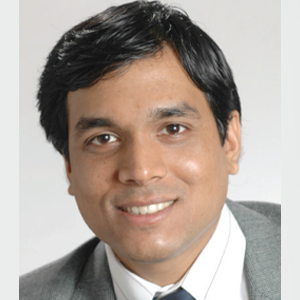
Prof. Sanjit Arunkumar Seshia is the Cadence Founders Chair Professor in the Department of Electrical Engineering and Computer Sciences at the University of California, Berkeley, USA. Prof. Seshia received his B.Tech. degree in Computer Science and Engineering from IIT Bombay in 1998, and his M.S. and Ph.D. degrees in Computer Science from Carnegie Mellon University in 2000 and 2005 respectively.
Prof. Seshia has been on the faculty in the Department of Electrical Engineering and Computer Sciences at UC Berkeley since 2005, where he is currently Professor and holds the Cadence Founders Chair. He has held visiting appointments at IIT Bombay, Massachusetts Institute of Technology (MIT), Microsoft Research, and Stanford University. He has led multiple large multi-university projects, co-founded a startup in the automotive domain, co-chaired leading international conferences, and served on professional and advisory committees for international organizations and institutions.
Prof. Seshia’s research interests and contributions are in formal methods for dependable and secure computing, spanning the areas of Cyber-Physical Systems (CPS), computer security, programming languages, electronic design automation, distributed systems, artificial intelligence (AI), and robotics. He has made pioneering contributions to the areas of satisfiability modulo theories (SMT) and inductive synthesis – engines of automated reasoning with broad applications in computer science, electrical engineering, and related areas. His group has also made foundational and wide ranging contributions to formal methods for CPS and AI systems, developing theory and open-source tools for verified AI based autonomy.
Prof. Seshia has co-authored over 200 refereed journal and conference publications, several of which have received best paper awards. His work has been widely adopted in the industry, with technology deployments by both large companies and startups, spanning domains such as chip design, cloud computing, automotive powertrain systems, and autonomous vehicles. Prof. Seshia is co-author of a textbook, “Introduction to Embedded Systems: A Cyber-Physical Systems Approach”, that is used in over 50 countries. He has also led the development of technologies for CPS education based on formal methods, including novel virtual laboratory and auto-grading technology demonstrated in the first massive open online course on CPS.
Prof. Seshia is the recipient of many awards and honours which include a Presidential Early Career Award for Scientists and Engineers (PECASE), an Alfred P. Sloan Research Fellowship, the Frederick Emmons Terman Award for contributions to electrical engineering and computer science education, the IEEE TCCPS Mid-Career Award, the Computer Aided Verification (CAV) Award, and several journal and conference best/influential paper awards. He is a Fellow of the Association for Computing Machinery (ACM) and the Institute of Electrical and Electronics Engineers (IEEE).
Hobbies:
“Hiking and exploring nature, playing and following sports, especially cricket and tennis, gardening, reading.”
